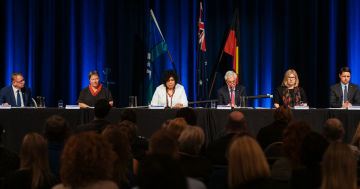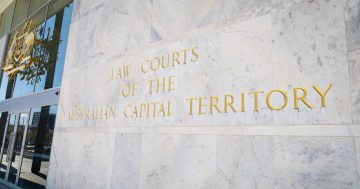
The Royal Commission into Institutional Responses to Child Sexual Abuse documented clear, ongoing, and unacceptable failures to protect children. We have a responsibility to ensure that our community is equipped to respond to reports of abuse in ways that are restorative for survivors, and that provide justice. The focus needs to be on people. Specifically, it must attend to the people let down because of the institutional failings documented by the Royal Commission.
Five years of courageous testimony resulted in an extensive set of recommendations delivered in December 2017. People like 2015 ACT Local Hero Damien De Marco shared their stories and demanded change. The ACT Government will respond to the Royal Commission in June this year in a way that shows our clear, unambiguous commitment to protecting children, and righting wrongs. The ACT has already opted in to the National Redress Scheme for Survivors.
The Government sought views from the whole community about the changes to criminal justice system on yoursay.act.gov.au. The need to engage with our whole community stems from the view that our response to the Royal Commission reflects a commitment to cultural change, and a demonstration of our core values.
Addressing vulnerability, including the vulnerability that survivors of historic sex abuse experience and the vulnerability of children in institutional settings, is our top priority. Canberra is a progressive city, one that firmly believes in social inclusion. We must ensure that vulnerable people in our city have a voice in Government and institutions, that they are protected from harm, and that they are empowered to seek justice and redress.
The ACT is uniquely placed, as Australia’s first human rights jurisdiction, to take action to prevent abuse and to provide redress and justice for survivors. The Human Rights Act gives us a framework for evaluating the competing rights and interests that were so evident in the Royal Commission’s report.
What we now know from the Royal Commission is that traditional adversarial methods of cross-examination and testing evidence in Court can yield an unfair bias against vulnerable witnesses, including child survivors of sexual abuse. The Royal Commission gave us a roadmap to eliminate that bias, and ensure that the evidence judges and juries consider is presented in a way that aligns with what we know about survivor testimony.
The ACT has long been a leader in adopting survivor-focused criminal laws. The use of pre-recorded evidence by survivors in child sexual assault trials was introduced in 2008, and has since been expanded to all sexual assault and family violence matters. The Royal Commission recommended all jurisdictions should pursue similar measures.
This Government will keep up its momentum to make our court process even more fair, evidence-based, and sensitive to the needs of survivors. But taking responsibility means more than just changing our laws. It means recognising that as a community, we all have a role to play in changing the culture of silence and inaction that the Royal Commission so thoroughly exposed. Engagement by our whole community in the process of responding to the Royal Commission is as important as the changes it will produce.
Gordon Ramsay is the ACT Attorney-General and the Member for Ginninderra.




















